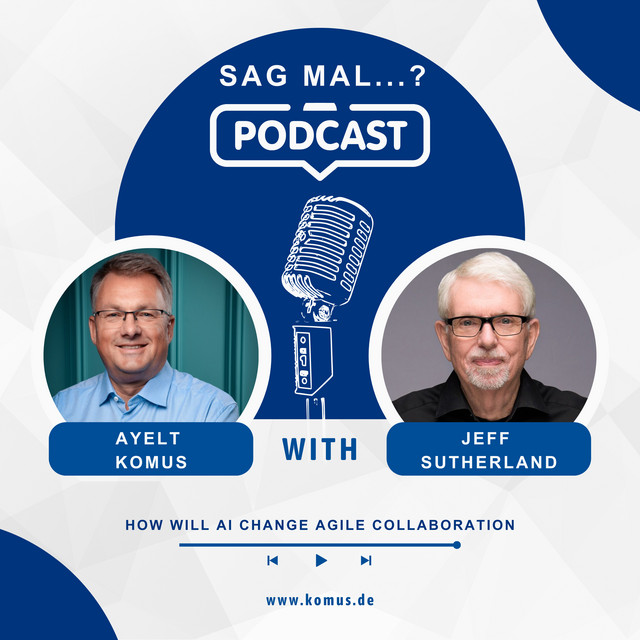AI in Sprint Planning Enhances Story Point Estimation
Introduction
Accurate story point estimation is crucial for successful sprint planning in Agile project management. Leveraging AI in sprint planning with tools like ChatGPT and Otter.ai, our team enhances the estimation process, leading to more accurate and reliable sprint plans. This blog will explain how we train ChatGPT and provide step-by-step guidance on improving story point estimations.
“By leveraging ChatGPT, we have shortened the sprint planning estimation points process from 45 minutes to only 1 minute, as the only task required is uploading the data from the previous sprint.”
General Process: How We Use AI in Story Point Estimation
Each sprint, we upload tasks along with our initial estimates and ChatGPT’s estimates, enhancing AI in Sprint Planning effectiveness. At the end of the sprint, we revisit these estimates with the team, record the real effort spent, and explain to ChatGPT why there were differences between the estimates and the actuals. This iterative training helps ChatGPT understand more with each sprint, leading to increasingly accurate estimations.
Step-by-Step Process:
- Upload Previous Sprint Data Exported From Jira:
- At the start of each sprint, we upload the data from the previous sprint into ChatGPT. This data includes:
- Summary (task name)
- Issue key
- Assignee
- Sprint
- Custom field (Story point estimate)
- REAL (actual effort spent)
- This historical data is crucial for training ChatGPT to understand the discrepancies between initial estimates and actual efforts.
- At the start of each sprint, we upload the data from the previous sprint into ChatGPT. This data includes:
- Analyze Historical Data:
- ChatGPT analyzes the uploaded data to identify patterns and trends. It looks at:
- How past estimates compared to actual efforts.
- Factors that led to underestimation or overestimation of story points.
- By understanding these patterns, ChatGPT can refine its estimation process for future sprints.
- ChatGPT analyzes the uploaded data to identify patterns and trends. It looks at:
- Generate Initial Estimates:
- Based on the historical analysis, ChatGPT generates initial story point estimates for the tasks in the current sprint.
- These estimates are informed by previous sprint data, taking into account task complexity, team capacity, and past performance.
- Team Review and Consensus:
- The team reviews ChatGPT’s initial estimates during the sprint planning meeting.
- Using a consensus-based approach, the team discusses and adjusts these estimates as needed.
- Otter.ai records these discussions, capturing all viewpoints and decisions made during the meeting.
- Validation and Adjustment:
- After the sprint, we compare the estimated story points with the actual effort spent (REAL).
- ChatGPT is trained with this new data, learning from any discrepancies to improve future estimations.
- This validation process ensures continuous improvement in the accuracy of story point estimations.
- Shortened Estimation Process:
- By leveraging ChatGPT, the time spent on estimating story points has been significantly reduced from 45 minutes to only 1 minute.
- The efficiency gain allows the team to focus more on critical planning and execution tasks rather than lengthy estimation discussions.
Detailed Example:
- Upload Previous Sprint Data:
- Example: For Sprint 40, we upload data from Sprints 33-39 into ChatGPT.
- This includes detailed records of each task, its initial estimate, and the actual time spent.
- Analyze Historical Data:
- ChatGPT identifies that tasks involving front-end development were consistently underestimated by 20%.
- It adjusts its estimation model to account for this discrepancy in future sprints.
- Generate Initial Estimates:
- ChatGPT provides initial estimates for Sprint 40’s tasks.
- Example: A task “Develop Login API” is estimated at 5 story points based on historical data.
- Team Review and Consensus:
- The team discusses the “Develop Login API” task and, considering the complexity and past performance, agrees that 5 story points are accurate.
- Additionally, Otter.ai records the consensus and any additional insights shared during the meeting, thereby ensuring a comprehensive record of all viewpoints.
- Validation and Adjustment:
- At the end of Sprint 40, the team reviews the actual effort spent on “Develop Login API,” which was 6 story points.
- This discrepancy is explained and fed back into ChatGPT to refine future estimates.
- Shortened Estimation Process:
- The entire estimation discussion for Sprint 40 takes only 1 minute due to ChatGPT’s accurate initial estimates.
- The team saves valuable time and can quickly move on to other planning activities.
Conclusion
Integrating AI into our story point estimation process significantly enhances our ability to create accurate and reliable sprint plans. ChatGPT and Otter.ai streamline the estimation process, reduce the time required, and continuously improve our estimation accuracy. By following this detailed process, we ensure that our sprint planning is efficient and effective, enabling us to deliver consistent value in our projects.
Additional Resources: To see an example of this process in action, check out our presentation “Using AI in Story Points Estimation.” This PowerPoint is available for download in the Resources section under Presentations.



